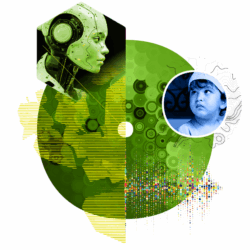November 23, 2015
RIBA signs UN Compact as part of an increased focus on ethics 0
 RIBA (The Royal Institute of British Architects) has become a signatory to the United Nations Global Compact (UNGC) and has undertaken to support its principles on human rights, labour standards, the environment and corruption. Joining the UNGC is part of the RIBA’s focus on ethics which has recently included co-founding a new coalition to develop a set of globally recognised ethics standards for real estate and related professional organisations. RIBA President Jane Duncan said: “As our profession changes and becomes increasingly international, so must our approach to developing and reinforcing professional ethics. Architecture has a direct impact on societies and economies; it shapes and influences the world we live in. For this reason, we architects have a duty to uphold the highest standards wherever we practice. I am delighted that RIBA has signed the UN Global Compact and undertaken to support and promote its principles.”
RIBA (The Royal Institute of British Architects) has become a signatory to the United Nations Global Compact (UNGC) and has undertaken to support its principles on human rights, labour standards, the environment and corruption. Joining the UNGC is part of the RIBA’s focus on ethics which has recently included co-founding a new coalition to develop a set of globally recognised ethics standards for real estate and related professional organisations. RIBA President Jane Duncan said: “As our profession changes and becomes increasingly international, so must our approach to developing and reinforcing professional ethics. Architecture has a direct impact on societies and economies; it shapes and influences the world we live in. For this reason, we architects have a duty to uphold the highest standards wherever we practice. I am delighted that RIBA has signed the UN Global Compact and undertaken to support and promote its principles.”

































July 2, 2013
Younger workers’ CSR ethics don’t necessarily extend to older generation
by Sara Bean • Comment, Legal news, News, Workplace
Is ageism one of the last bastions of accepted prejudice in the UK? Take the Daily Mail’s “night of the living dead” coverage of the Stones’ Glastonbury performance – deemed acceptable where jokes regarding gender, race or disability are not. A new survey illustrates this attitude. Nearly half of younger workers in a recent poll think older colleagues are in danger of stifling their career prospects by retiring later, that their prolonged presence could damage productivity and that they have very little to teach the younger generation. Yet over half (55 per cent) of Generation Y workers questioned in the poll say the ethical credentials of a company would influence their choice of employer. Since the scrapping of the Default Retirement Age (DRA) the number of over-65s in the labour force has exceeded one million, and the survey, carried out for KPMG by OnePoll warns that tensions could rise as the need for employees to stay in the labour force for longer growing due to social and financial pressures. (more…)